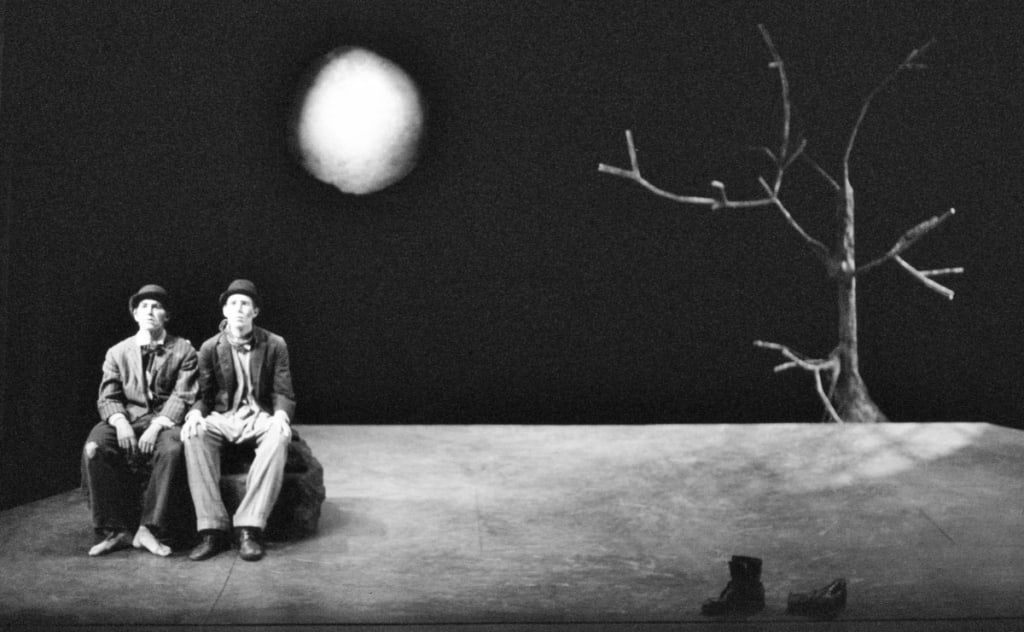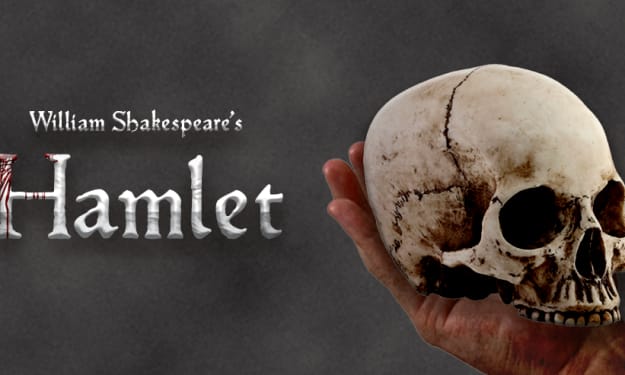Waiting for Godot
A Theatrical Odyssey Through Existential Turmoil

Samuel Beckett's "Waiting for Godot" is a theatrical masterpiece that, on the surface, might appear to be a perplexing puzzle with no apparent solution. Yet, beneath its enigmatic exterior, it serves as a striking reflection of the post-war world and the profound existential dilemmas that haunted its characters. While some might argue that the play lacks substance, it is, in fact, a captivating journey through the human psyche, offering both an exploration of despair and a glimmer of hope.
Absurd Drama Unveiled
The genre of absurd drama, which gained prominence in the 1950s and early 1960s in Europe and America, is the fertile soil from which "Waiting for Godot" springs. This style deliberately accentuates the absurdity of human existence, employing disjointed, repetitive, and seemingly meaningless dialogues. It revels in purposeless and perplexing logical scenarios, and its plots often lack the linear development one might expect in conventional theater.
Imagine a canvas painted with bold strokes of existential absurdity, and you have "Waiting for Godot." The play introduces us to two characters, Vladimir and Estragon, who find themselves trapped in a ceaseless cycle of anticipation. Their sole purpose? Waiting for someone named Godot. Along their journey, they encounter two passersby: Pozo and his beleaguered servant, Lucky. Despite the varied interactions and fleeting moments of purpose, the outcome remains the same: Godot remains elusive, shrouded in mystery. The drama, while undeniably puzzling and at times uproariously funny, serves as a poignant reflection of the human condition.
Endless Waiting and Existential Crises
To the uninitiated observer, Vladimir and Estragon's ceaseless waiting may seem like a futile exercise in time-wasting. However, this couldn't be further from the truth. Their waiting is emblematic of a deeper existential crisis that permeates the play. Existential crises are those moments when individuals question the very essence of their existence. They ponder whether life possesses any inherent meaning, purpose, or value. These crises often arise from excessive anxiety, depression, and stress, making them a central theme of absurd drama.
In Beckett's masterpiece, existential crises are showcased as a mirror to the societal devastation wrought by World War I and World War II. These two cataclysmic events left a haunting mark on the human psyche, plunging people into a despair so deep that they questioned the essence of their being. This profound sense of hopelessness is vividly illustrated in the play when Vladimir and Estragon contemplate suicide not once but twice. Their actions are a stark representation of the psychological scars left by the wars and their struggle to find meaning in a seemingly meaningless world.
What's more, Vladimir and Estragon's behavior becomes increasingly erratic, distancing them from the norms of conventional human behavior. They appear lost, adrift in a sea of existential turmoil, unable to act as rational human beings. It is as if they have become refugees from sanity, casualties of a world turned upside down by the ravages of war.
A Quest for Divine Intervention
In "Waiting for Godot," the act of waiting is not merely an idle pastime; it is an attempt to fill the void created by the absence of meaning in their lives. But this is no simple waiting game. Beckett cleverly hints at a deeper layer of symbolism, as "Godot" is pronounced as "God-oh." Through this linguistic twist, Beckett implies a connection to the divine. Godot becomes a symbol of God, and the characters' relentless waiting is akin to a spiritual quest for divine intervention.
In times of immense existential turmoil or psychological anguish, individuals often turn to a higher power for solace and relief. Even when hope seems all but lost, the belief persists that God can work miracles and restore life to its former glory. In "Waiting for Godot," this yearning for divine intervention serves as a powerful reminder of the seismic societal shifts that occurred after the two world wars.
To sum up, "Waiting for Godot" is far from the theatrical void it might initially appear to be. It is a profound exploration of the post-war world and the existential crises that engulf its characters. Within the chaos and uncertainty, a fragile hope persists as Vladimir and Estragon eagerly await Godot's arrival—a symbol of their yearning for a brighter future. Through this timeless masterpiece, Beckett invites us to ponder the complexities of human existence and the indomitable spirit that keeps us waiting, believing, and hoping even in the face of absurdity. In doing so, "Waiting for Godot" transcends its enigmatic exterior to offer a captivating and enduring theatrical experience.
About the Creator
Enjoyed the story? Support the Creator.
Subscribe for free to receive all their stories in your feed. You could also pledge your support or give them a one-off tip, letting them know you appreciate their work.






Comments
There are no comments for this story
Be the first to respond and start the conversation.